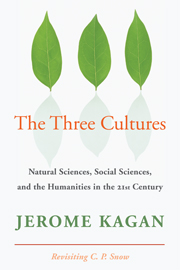5 - The Humanities
Published online by Cambridge University Press: 07 August 2009
Summary
Philosophers, scholars of literature, and historians differ from natural and social scientists in many of the dimensions listed in Chapter 1. Most work alone, are not highly dependent on grant support from government agencies, and rely primarily on semantic texts as a source of evidence (that is why I classified historians with humanists rather than with social scientists). Novelists, poets, playwrights, painters, and composers belong to a special category because most are not associated with academic institutions and their creative products are intended to serve aesthetic motives, rather than meet the scientists' demand for a close correspondence between an idea and an observation.
The humanists lost a great deal of the authority they enjoyed a few centuries earlier when professors of philosophy and theology commanded far more respect than the small cohort of natural philosophers. Beethoven claimed some of the moral authority that nineteenth-century Europeans attributed to poets by regarding himself as a tone poet. Humanists lost substantially more confidence than social scientists following the ascent of the natural sciences. This erosion of status was especially strong among Americans, who have always restricted their praise and admiration to intellectual work that had pragmatic consequences. That is why Benjamin Franklin, not Herman Melville or Nathaniel Hawthorne, is a national hero, why the Congress of the young democracy chose to build the patent office, rather than a church, museum, symphony hall, or library, on a prominent location on the mall, and why Henry Ford snarled, “History is bunk”.
- Type
- Chapter
- Information
- The Three CulturesNatural Sciences, Social Sciences, and the Humanities in the 21st Century, pp. 222 - 244Publisher: Cambridge University PressPrint publication year: 2009



